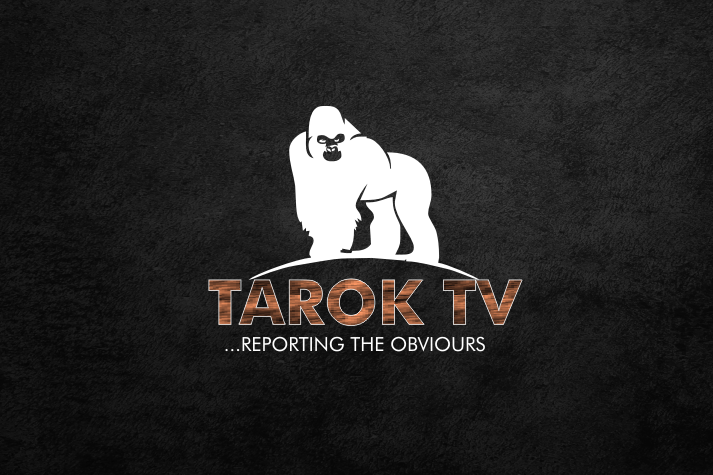Healthcare Careers: Jobs in America's Medical Sector
- Home /
- blog post
The American healthcare system is a vast and intricate network, providing an array of services to a diverse population. Behind the scenes of this complex system are dedicated professionals working tirelessly to ensure the well-being of individuals across the nation. In this blog post, we will explore the diverse landscape of healthcare careers in America, shedding light on the rewarding opportunities available in the medical sector.
The Growing Demand for Healthcare Professionals:
As the United States continues to face demographic shifts, an aging population, and advancements in medical technology, the demand for healthcare professionals is on the rise. According to the U.S. Bureau of Labor Statistics (BLS), healthcare occupations are projected to add more jobs than any other occupational group between 2020 and 2030. This growing demand opens up a plethora of opportunities for individuals seeking fulfilling and impactful careers in the medical sector.
- Physicians and Surgeons: The Cornerstone of Healthcare
At the forefront of the medical sector are physicians and surgeons, who play a pivotal role in diagnosing and treating patients. Becoming a physician involves years of rigorous education and training, including medical school and residency programs. Specialties range from family medicine to neurosurgery, allowing professionals to focus on areas that align with their passion and expertise.
Despite the demanding nature of the profession, physicians find immense satisfaction in making a difference in the lives of their patients. The evolving landscape of healthcare, with a focus on preventive care and holistic well-being, has further expanded the scope and importance of this career.
- Nursing: Compassion in Action
Nurses are the backbone of healthcare, providing essential care and support to patients. With various pathways to enter the nursing profession, including associate and bachelor's degree programs, as well as diploma programs, nursing offers a diverse range of career options. Registered Nurses (RNs), Nurse Practitioners (NPs), and Licensed Practical Nurses (LPNs) contribute to different aspects of patient care.
The demand for nurses is particularly high, and the profession continues to evolve with nurses taking on more responsibilities, such as primary care and patient advocacy. Nursing is not just a career; it's a calling, requiring a unique blend of compassion, critical thinking, and technical skills.
- Allied Health Professions: The Hidden Heroes
Beyond physicians and nurses, a multitude of allied health professionals play crucial roles in the healthcare system. From medical laboratory technologists and radiologic technologists to respiratory therapists and physical therapists, these individuals work collaboratively to ensure comprehensive patient care.
Allied health professions often require specialized education and training, typically through associate or bachelor's degree programs. The diversity of these roles allows individuals to find niches that align with their interests and skills, contributing to the holistic well-being of patients.
- Healthcare Administration: Managing the Business of Healing
While healthcare professionals directly interact with patients, a parallel workforce focuses on the administrative aspects of healthcare. Healthcare administrators, also known as healthcare executives or healthcare managers, oversee the business side of healthcare institutions. This includes managing finances, human resources, and ensuring compliance with regulations.
The role of healthcare administrators has become increasingly critical as healthcare organizations navigate complex regulatory environments and the adoption of technology. Individuals with a background in business, healthcare management, or public health can find fulfilling careers in healthcare administration.
- Health Informatics: Bridging Technology and Patient Care
In the digital age, the role of technology in healthcare cannot be overstated. Health informatics professionals are at the forefront of this intersection, using data and technology to improve patient outcomes and streamline healthcare processes. This field encompasses roles such as health information managers, clinical informaticists, and data analysts.
Professionals in health informatics require a blend of healthcare knowledge and technical skills. They work on implementing and managing electronic health records, analyzing healthcare data to inform decision-making, and ensuring the secure and efficient exchange of health information.
Challenges in Healthcare Careers:
-
Burnout and Work-Life Balance: Healthcare professionals often face demanding schedules and high-pressure situations, leading to burnout. Striking a balance between work and personal life is crucial for maintaining well-being and sustaining a long, fulfilling career.
-
Technological Advancements: The rapid integration of technology in healthcare requires professionals to stay updated on the latest innovations. While technology enhances patient care, it also poses challenges in terms of data security, interoperability, and adapting to new systems.
-
Diversity and Inclusion: Addressing healthcare disparities and ensuring cultural competence is a growing concern. Healthcare professionals must be equipped to provide equitable care to an increasingly diverse population.
-
Changing Regulatory Landscape: Healthcare is subject to a myriad of regulations, and professionals must stay informed about changes that impact their practice. Compliance with regulations ensures the delivery of high-quality, ethical care.
Innovations Shaping the Future:
-
Telemedicine and Remote Patient Monitoring: The COVID-19 pandemic accelerated the adoption of telemedicine, transforming the way healthcare is delivered. Remote patient monitoring and virtual consultations have become integral parts of healthcare, offering convenience and accessibility.
-
Precision Medicine: Advances in genomics and personalized medicine are revolutionizing treatment plans. Healthcare professionals can now tailor therapies based on an individual's genetic makeup, improving the effectiveness of treatments and minimizing side effects.
-
Artificial Intelligence (AI) in Healthcare: AI is being increasingly utilized for diagnostics, predictive analytics, and decision support. While AI can enhance efficiency, healthcare professionals need to collaborate with technology, ensuring a human touch in patient care.
-
Interprofessional Collaboration: Recognizing the interconnectedness of healthcare roles, there is a growing emphasis on interprofessional collaboration. Teams of professionals from various disciplines work together to provide comprehensive, patient-centered care.
Career Development and Education:
As the healthcare landscape evolves, continuous learning and professional development become paramount. Many healthcare careers require ongoing education to stay abreast of advancements in their respective fields. Professional organizations, conferences, and online platforms offer avenues for networking and learning.
-
Continuing Education: Healthcare professionals can engage in continuing education programs, workshops, and conferences to stay updated on industry trends. Many professions have mandatory continuing education requirements to maintain licensure.
-
Specialization and Certification: Specializing in a specific area of healthcare can open new career pathways. Obtaining certifications in specialized fields not only enhances skills but also demonstrates a commitment to excellence.
-
Mentorship and Networking: Building a professional network and seeking mentorship can provide valuable insights and guidance. Connecting with experienced professionals allows individuals to learn from others' experiences and navigate their career paths more effectively.
-
Adapting to Technological Changes: Embracing technology and acquiring digital literacy is essential. Professionals in healthcare informatics, for example, must continuously update their skills to leverage the latest technologies in data analysis and healthcare information systems.
The Call to Service:
Amidst the challenges and innovations, the core of healthcare careers remains a profound sense of service. Healthcare professionals share a common commitment to improving the health and well-being of individuals and communities. The intrinsic rewards of making a positive impact on people's lives continue to drive individuals towards careers in the medical sector.
Aspiring healthcare professionals should approach their careers with a blend of passion, resilience, and adaptability. While challenges may arise, the opportunity to contribute to the greater good and be at the forefront of transformative healthcare practices makes the journey immensely fulfilling.
Conclusion:
The landscape of healthcare careers in America is vast and ever-evolving, offering diverse opportunities for individuals with a passion for making a difference in the lives of others. Whether one chooses the path of a physician, nurse, allied health professional, healthcare administrator, or health informatics specialist, each role contributes uniquely to the holistic functioning of the healthcare system.
As the demand for healthcare professionals continues to grow, so does the need for individuals committed to the values of compassion, innovation, and excellence in patient care. Exploring and understanding the various healthcare careers available can guide individuals towards a fulfilling and impactful journey in the dynamic and rewarding field of America's medical sector.

About Admin - Admin
TarokTv, ...Reporting the obvious.
Contact
Phone number: 07062319173
Email: [email protected]
Reach out to us with any news or article.
Latest Articles

Success leaves clues, and those who seek to make a difference must study the lives of those who…
read more
Langtang, a town in Plateau State, Nigeria, is not just another dot on the map but a significant origin for…
read more
Brief Biography of Gen. (Senator) Jeremiah Timbut Useni
Early Life and Education:
Jeremiah Timbut Useni, often referred to as "Jerry Boy," was born on February 16, 1943,…
read more
The Ibiari: A Sacred Tradition in Tarok land
The Ibiari Oga Sa festival, an annual tradition in Tarokland, was celebrated today as part of the year-end observance marking…
read more
ITAROK PA IZING BY REV. DR. SELBUT LONGTAU
A PAPER PRESENTATION AT ITAROK PA IZING 2ND CARNIVAL HELD AT THE AZI NYAKO YOUTH CENTRE, JOS, 30TH NOVEMBER, 2024
… read more
TarokTv News: The Return of "Gathering of Bookworms" - A Literary Revival in Langtang North/South
TarokTv is thrilled to announce the upcoming edition of the Gathering of Bookworms, a celebrated event aimed at uniting the…
read moreLatest Albums
Recent videos
Copyright © 2020 - TarokTv designed by Taroktv Media.








leave a comment
0 comment